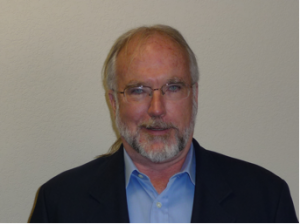|
||
|
Tuesday — 2:15 p.m. to 3:30 p.m.
Science and academia are entering a new era. At least five new paradigm shifts are driving many emerging trends: (1) data are now being viewed as valuable products of the scientific enterprise; (2) libraries are going digital and becoming the new era’s repositories for knowledge, information, and data; (3) grand challenge, “big science” questions are increasingly dominating the scientific research agenda; (4) data-intensive science reigns; and (5) data management is the new statistics. These changes are reflected in the need for new information infrastructure approaches as exemplified in the environmental sciences. In particular, the scope and nature of biological, environmental and earth sciences research are evolving in response to environmental challenges such as global climate change, invasive species and emergent diseases. Consequently, scientific studies are increasingly focusing on long-term, broad-scale, and complex questions that require massive amounts of diverse data collected by remote sensing platforms and embedded environmental sensor networks; collaborative, interdisciplinary science teams; and new approaches for managing, preserving, analyzing, and sharing data. DataONE (Data Observation Network for Earth) is a new cyberinfrastructure platform developed to support rapid data discovery and access across diverse data centers distributed worldwide and designed to provide scientists with an integrated set of familiar tools that support all elements of the data life cycle (e.g., from planning and acquisition through data integration, analysis and visualization). Ongoing evolution of the DataONE architecture is based on participatory, user-centered design processes including: (1) identification and prioritization of stakeholder communities; (2) developing an understanding of their perceptions, attitudes and user requirements; (3) usability analysis and assessment; and (4) engaging science teams in grand challenge science exemplars. Many of today’s challenges are primarily technical in nature and can be resolved through continued investment of time, energy, and resources. A greater challenge, however, may lie in the sociocultural realm—that is, in specifically identifying, understanding, and prioritizing the technical challenges to be overcome, as well as in educating scientists and others about the solutions. The cyberinfrastructure landscape is littered with unused hardware and software solutions that were created without understanding user requirements or by ignoring ease-of-use issues that are critical for tool adoption. Past lessons highlight the importance of engaging stakeholder communities early in the planning and building interoperable, international infrastructure to support science. Such efforts will require interdisciplinary teams that encompass both computer scientists and domain scientists (e.g., environmental scientists, library and information scientists, and social scientists). It will be especially critical to educate new generations of scientists and students in the use of cyberinfrastructure that will enable them to continue to expand the spatial, temporal, and disciplinary scales in which they work. Both the domain sciences and the library and information sciences will play a key role in facilitating socio-cultural changes. About the speaker: Presentation (PPT) |

You must be logged in to post a comment.